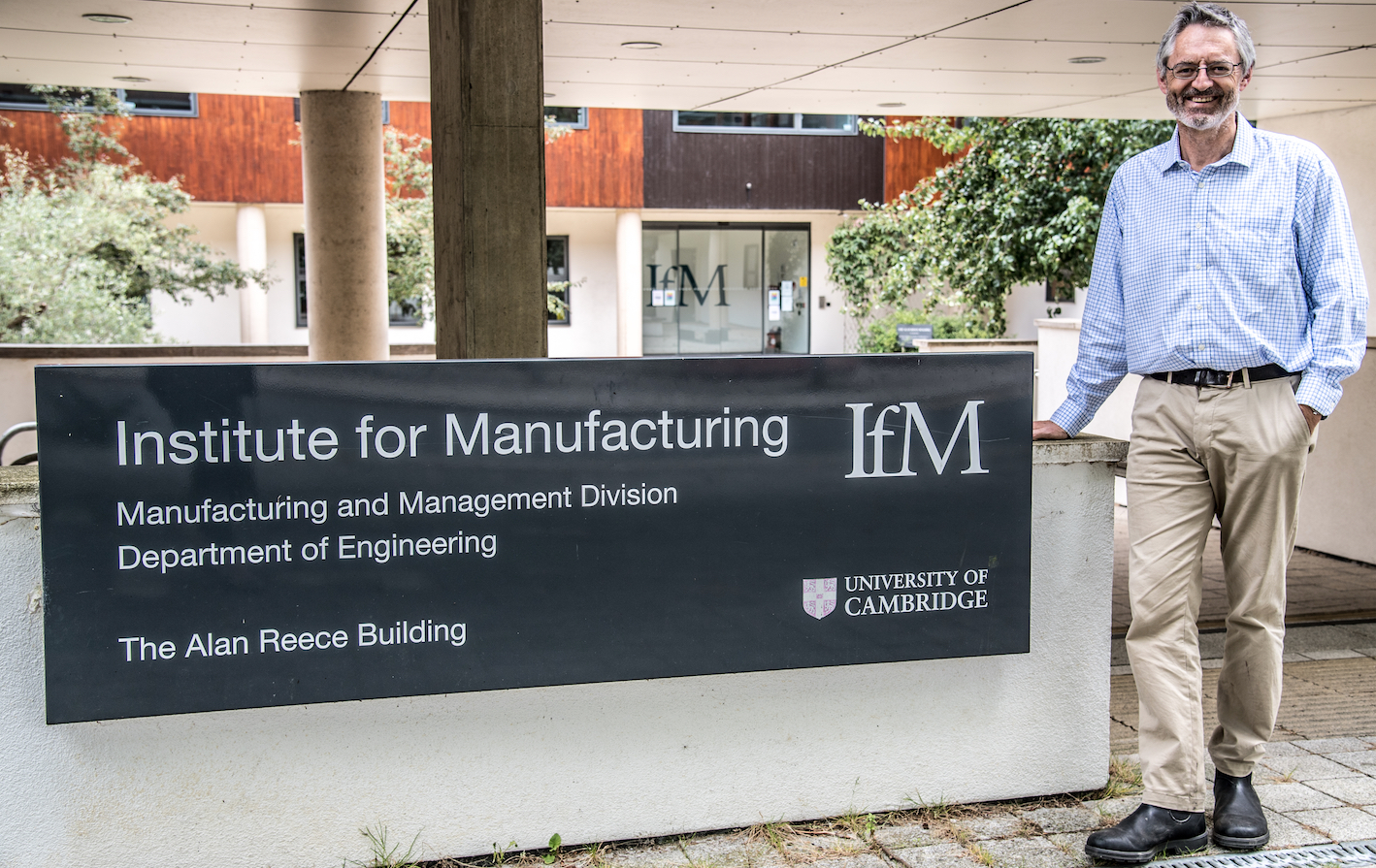Cambridge academics given special engineering awards for transformative Covid-19 work
“Engineering expertise and innovation has been central to the global fight to save lives and protect livelihoods”
An ‘exceptional’ team of Cambridge engineers led by a St John’s academic has been specially honoured for its service during the Covid-19 crisis.
Professor Duncan McFarlane, from the University Institute for Manufacturing (IfM), is the Covid response coordinator for a group of 37 colleagues and engineering students who together have been awarded the Royal Academy of Engineering President’s Special Award for Pandemic Service, announced today (17 August).
The team has been commended for its rapid response to the pandemic, helping local hospitals to make the best use of their resources, streamlining logistics for sourcing and storing vital PPE, informing decision-making on emergency demand, and developing a ventilator sharing system to be used in emergencies.

Led by Professor McFarlane, who is Professor in Industrial Information Engineering at the Department of Engineering, Head of the Distributed Information and Automation Laboratory within the IfM, and a Fellow of St John’s, the group is one of 19 individuals and teams of engineers across the UK to be given the award for exceptional engineering achievements in tackling Covid-19.
The Royal Academy of Engineering is the UK’s national academy of engineering and works to harness the power of engineering to build a sustainable society and an inclusive economy. Professor Sir Jim McDonald FREng FRSE, President of the Academy, said: “The Covid-19 pandemic is the biggest public health crisis of our time and has presented society with multiple challenges. Engineering expertise and innovation has been central to the global fight to save lives and protect livelihoods.
“I am also incredibly proud of engineers everywhere who have worked round the clock to maintain essential services, critical supply chains and infrastructure in unprecedented circumstances, using their training and skills to find innovative solutions to a host of problems and to help mitigate the impact of Covid-19 on our daily lives.”
The achievements recognised by the awards span the whole field of engineering from ventilators and vaccines to hospital building and infection tracking. They have been made to teams, organisations, individuals, collaborations and projects across all technical specialities, disciplines and career stages within the UK engineering community who have contributed to addressing the challenges of the Covid-19 pandemic.
By early April the award-winning Cambridge team from the Department of Engineering was already using modelling tools originally designed to manage the efficiency of factories to help Addenbrooke’s Hospital plan patient flow during the Covid-19 emergency. Industrial engineering students also volunteered to focus on the hospital’s oxygen supply and Covid-19 testing processes. At the time, Professor McFarlane said: “Two weeks ago we knew very little about hospital operations, but with close input from the hospital we’ve been able to pick from a series of industrial techniques and apply the most useful ones to this new setting. Instead of production lines we’re now looking at hospital wards, and rather than products or raw materials we are examining the flow of patients and supplies.”
The award-winning group of Cambridge engineers includes three St John’s alumni: Dr Jennifer Schooling, Director, Centre for Smart Infrastructure and Construction (hospital logistics team); Mr Alan Thorne, Technical Officer and Manager of the Automation Laboratory (active ventilator sharing system team), and Professor Tim Minshall, Dr John C Taylor Professor of Innovation (PPE team) and Head of the IfM.
Roland Sinker, CEO of Cambridge University Hospitals (CUH), said: "The IfM staff and students consistently demonstrated commitment to use their engineering expertise and time to serve our patients and protect our staff in these challenging times."
Professor Minshall said: “It makes me so proud to see the way in which our students and staff – academic, research and administrative – were able to rapidly understand and help address the operational challenges facing the amazing teams at Addenbrooke’s and Royal Papworth during this crisis.
“We are also delighted that there is such enthusiasm from both CUH and the IfM to build upon this experience and to develop ongoing collaboration in applying industrial engineering capabilities to healthcare system needs.”
The University of Cambridge Open Ventilator System Initiative team led by Dr Tashiv Ramsander has also received a pandemic service award. It developed a high-performance ventilator for manufacture in low and middle-income countries that became the first intensive care quality ventilator to be manufactured in Africa.
Professor Raffaella Ocone OBE FREng FRSE, Chair of the Academy’s Awards Committee, said: “Engineering skills – including innovation and interdisciplinary collaboration – have proved to be of vital importance during the current pandemic. We were delighted that the breadth of nominations for these awards reflected so much of the extraordinary work engineers have been doing.
“While I am delighted that we are able to recognise some of these outstanding achievements with these awards I am mindful that the important work of the vast majority of engineers will remain largely outside the public’s consciousness. They are all deserving of our thanks and admiration for their continuing positive contribution to society.”
Specially commissioned silver medals will be presented to all the winners later this year.
The Institute for Manufacturing's Covid-19 response.
All the winners of the Royal Academy of Engineering President’s Special Award for Pandemic Service.
Published: 17/08/2020